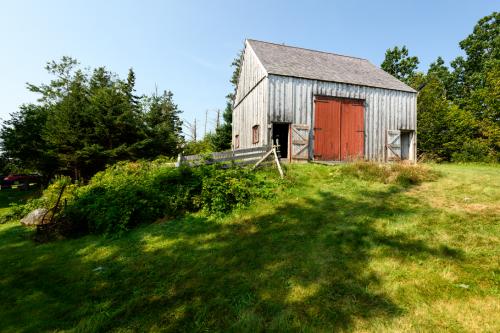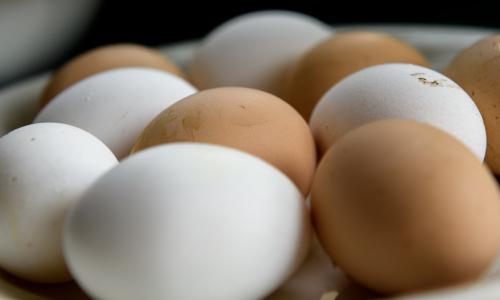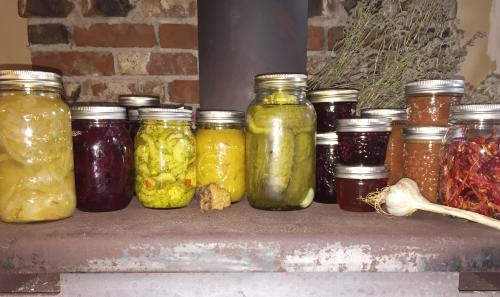Families do not Live on Fish Alone
What defined daily life for the Myers family, like so many fishing families, was the fact their fisherman was rarely home. During the fishing season Ervin spent most of his time working from his fish shack on Roger Barren Island. During the winter, he was at a lumber camp, returning only on Saturday. This left the wives of fishermen, such as Ethelda Myers, responsible for not only the children but also home, farm, and livestock. The Myers children recalled how their mother “just had to be the man of the family then as well as the mother.”
Farming was no easy task on the Eastern Shore, as topography and climate are not ideal for agriculture. The Myers property is situated on small, hilly peninsula which is bordered by salt water and littered with glacial granite boulders. Between these obstacles, there are thin areas of rich soil. The Myers family used these areas for a vegetable garden, a potato garden, a couple fruit trees, pasture lands for the animals, plus a flower garden. The soil was improved by fertilizing it with seaweed and cattle manure.

In the spring, before leaving to fish, Ervin would help Ethelda plow the gardens and plant the potatoes. The vegetables, more sensitive to spring frosts, were planted in June by Ethelda and the children from seeds either purchased from mail order companies, the local store, or saved from last year. Most years they would grow enough food to keep the family fed all winter plus sell extra to the neighbours.
Growing the food was only the first step. Everything needed to be preserved without the help of refrigeration. The cool, dark cellar was filled with barrels of fruit and vegetables and shelves of preserves, pickles, and chows.

A fisherman’s family also kept animals. The Myers had a horse, a beef cow and a dairy cow, chickens, pigs, and geese, plus cats, dogs and sometimes a pet bird. As with the gardening, the care of these animals was the responsibility of wives and children during the fishing season.
Rarely did any fishing family go hungry. The ability to grow and preserve their own food provided a good life for even the largest of families. Today, with family and urban gardens, many families are trying to get back to this farm to table way of life. We have many lessons we can learn from families like the Myers.
